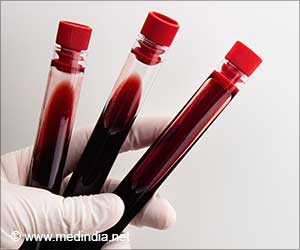A new treatment for psoriasis that targets its key inflammatory mediators (IL-12 and IL-23) is highly effective
A new treatment for psoriasis that targets its key inflammatory mediators (IL-12 and IL-23) is highly effective, according to a study by University of Utah researchers.
Current treatments for psoriasis include topical medicines and UV light therapy to treat the symptoms of the disease. Many of these treatments are messy, time consuming, have cumulative toxicities, and are not very effective, according to Gerald Krueger, M.D., principal investigator for the study. Krueger is a professor of dermatology and a Benning Presidential Endowed Chair at the University of Utah School of Medicine.He says the results of the study are especially intriguing because of what it may mean for other immune mediated diseases that share the same signaling pathways, specifically inflammatory bowel disease (IBD).
In 2005 another team of researchers (Mannon et al for the anti-IL-12 Study Group) showed that a different human monoclonal antibody to p40 was effective in the treatment of IBD. 'These results suggest that therapeutics that target the IL-12 and IL-23 signaling pathway appear to effectively treat both psoriasis and IBD,' he said.
According to Krueger, the story of the link between psoriasis and IBD gains intrigue by events independent of these reports of treatment success. In October of last year the University of Utah and Celera Group of Applera Corporation reported at the American Association of Human Genetics annual meeting that psoriasis patients carry a common polymorphism in the gene for p40 (IL12B) more often than control subjects. Further exploration led to a discovery of a second polymorphism in the receptor for IL-23 that also associates with psoriasis. These results were recently published in the American Journal of Human Genetics (Cargill et al. 2007). Duerr and colleagues (2006) have reported that the same variant in the IL-23 receptor is associated with IBD. The common forms of these polymorphisms are associated with risk of both psoriasis and IBD, while the uncommon forms are protective, according to Krueger.
'This is really an alignment of the stars. It’s unusual that targeting a new inflammatory pathway in two different diseases provides patients with dramatic improvement,' he said. 'And then, almost simultaneously, we find disease-associated genetic variants in this same pathway.'
Krueger and colleagues at Celera predict that refinement of disease association patterns to specific genetic variants within IL-12/23 and the IL-23 receptor will play an important role in the elucidation of the causes of psoriasis, and IBD.
Advertisement
Source-Newswise
SRM











